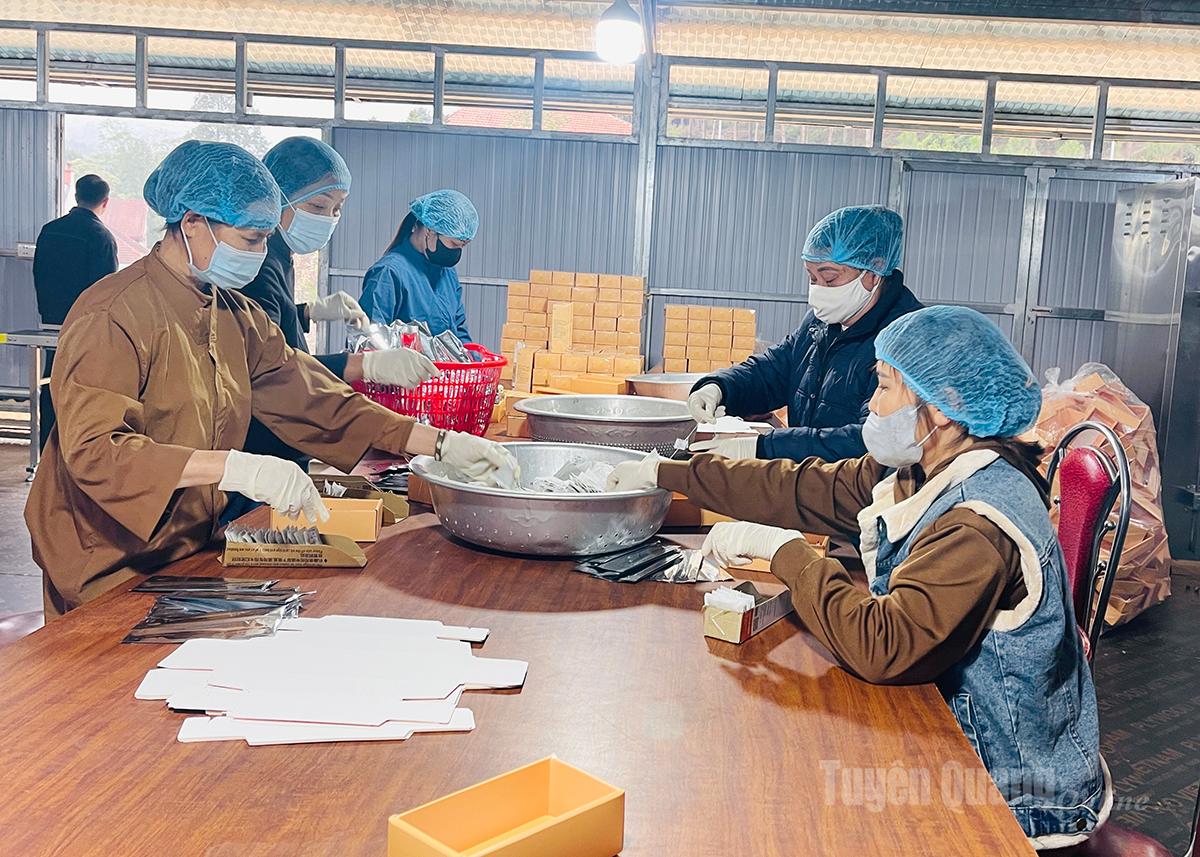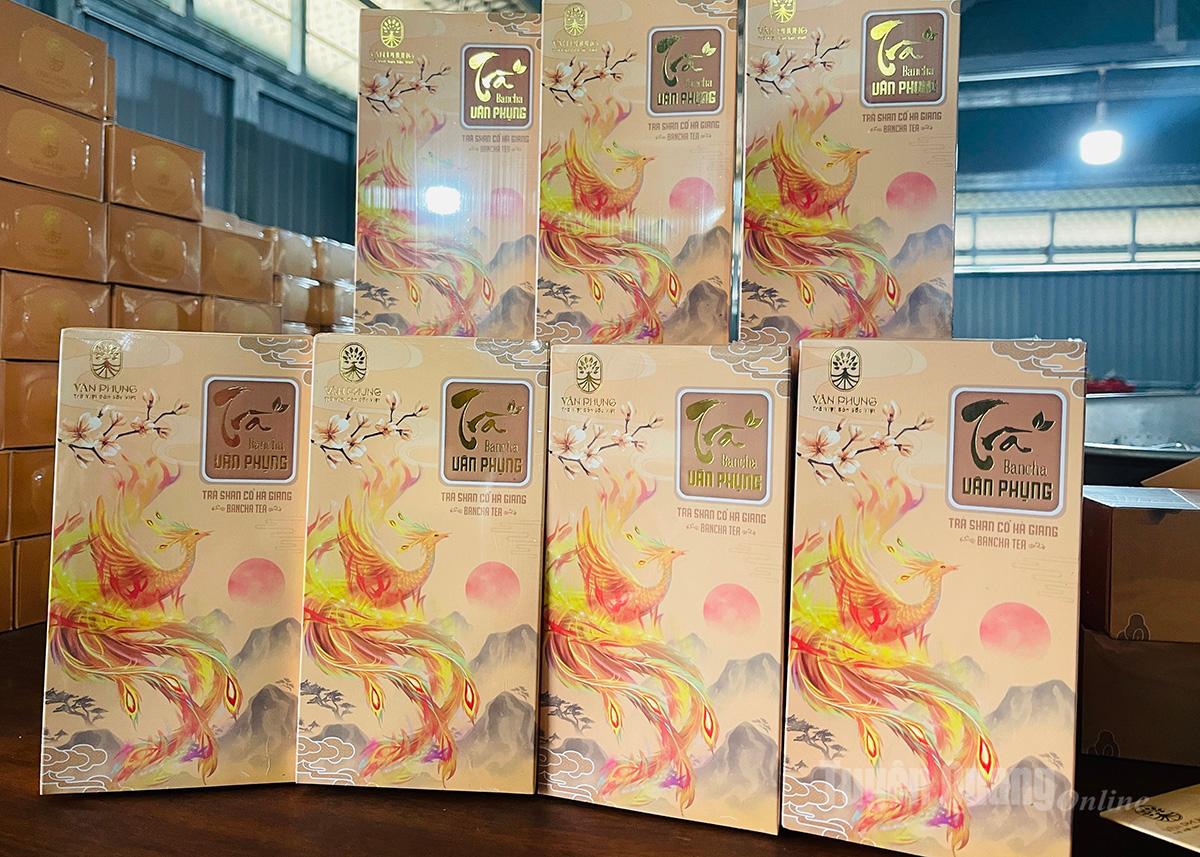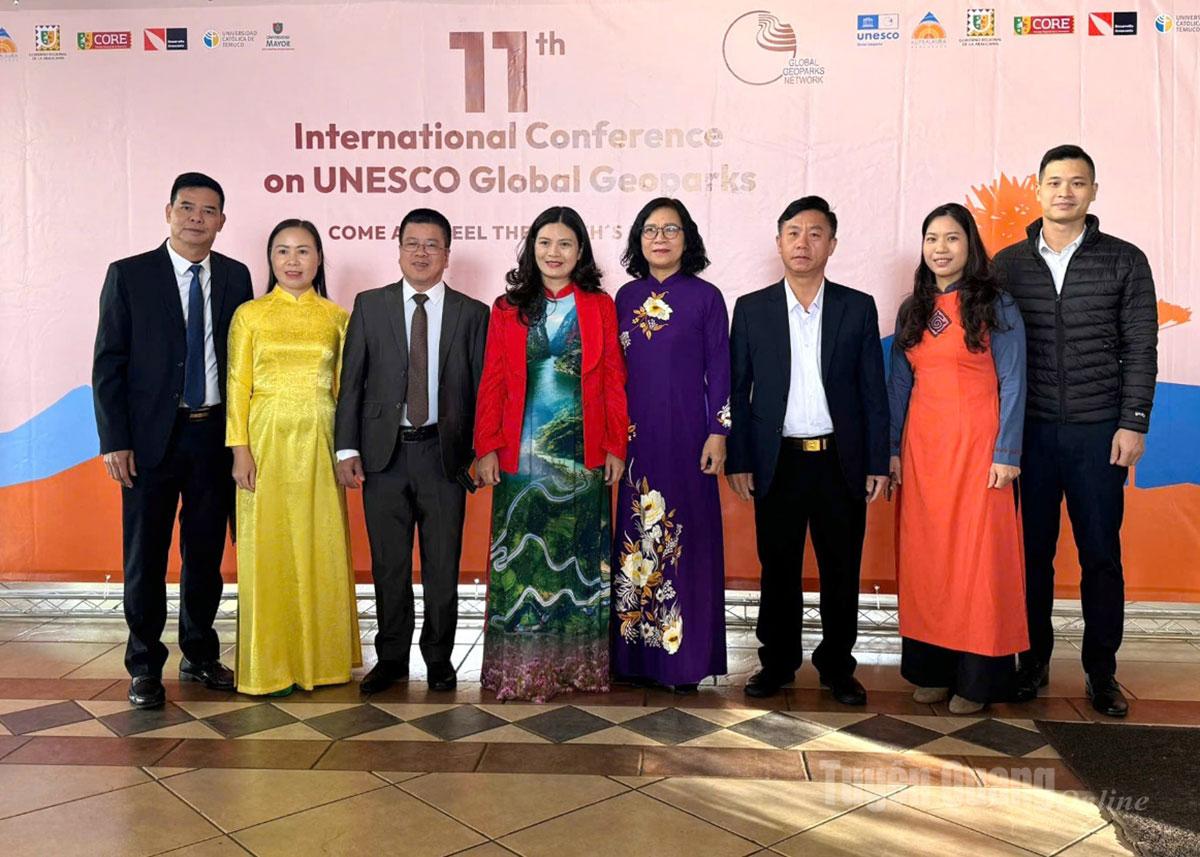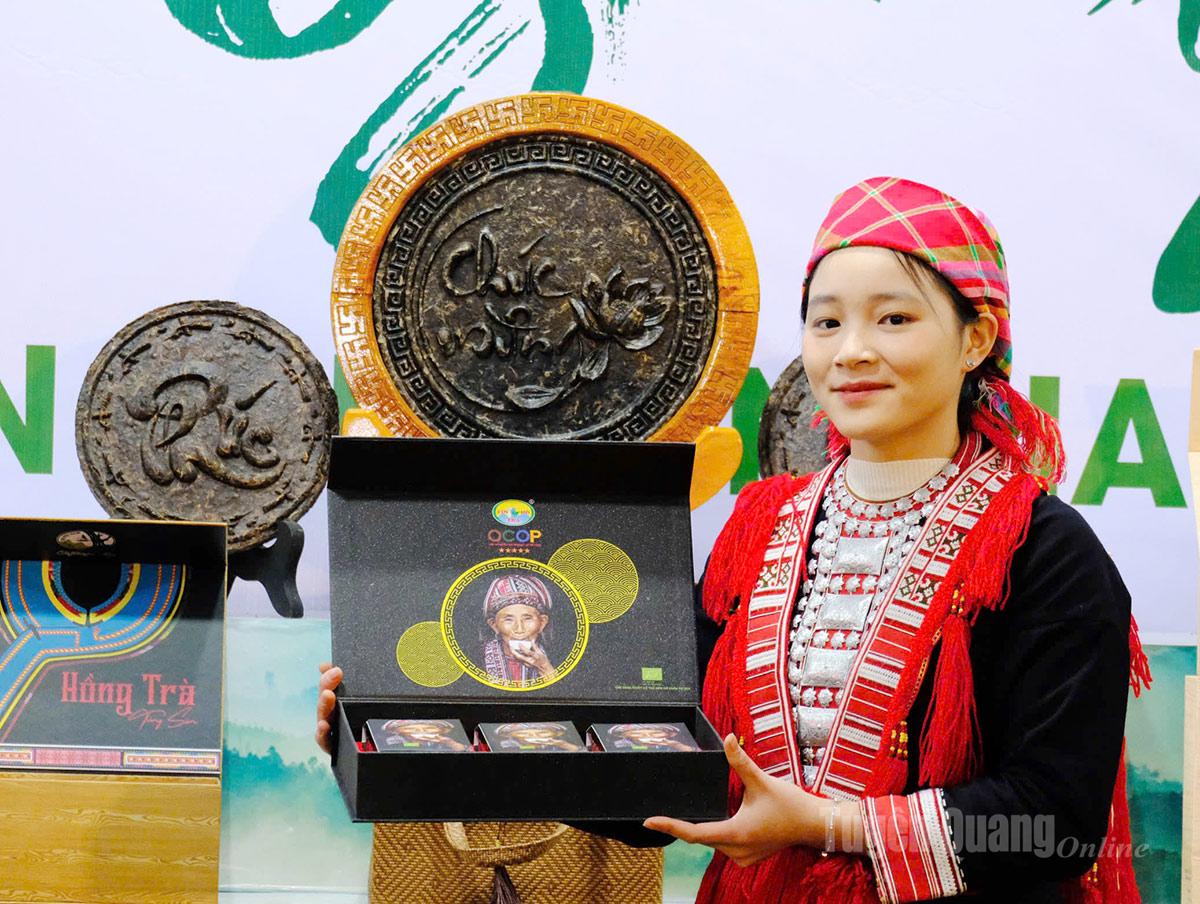
Workers packs tea manually
In Vị Xuyên, a commune long known for tea cultivation, a local cooperative has turned an overlooked resource into a new specialty. For years, Shan Tuyet “old leaves” were left largely unused, despite their potential. Now, Anh Tu Cooperative, led by director Nguyen Ngoc Tu, is transforming them into Bancha tea, a Japanese-style brew valued for its health benefits.
Bancha, traditionally harvested in Japan at the end of the season, uses mature leaves from older tea trees. At Anh Tú Cooperative, the process is entirely manual: leaves are carefully selected, blanched, cooled, shade-dried, then crushed and packed into convenient tea bags—preserving both flavour and nutrients.

Bancha tea is neatly packaged and delivered to consumers
With its mild taste and low caffeine content, Bancha is suited to modern lifestyles. Packaged in tea bags, it appeals especially to young consumers looking for something quick, healthy and easy to prepare. The tea is also said to aid digestion, boost metabolism and support the immune system.
In 2024, the cooperative supplied more than 10,000 packs of Bancha, creating seasonal jobs for about 10 local workers, each earning around VND 300,000 ($12) a day. For 2025, production is set to expand, with stronger promotion aimed at introducing Shan Tuyet tea to a wider market.
Local authorities are backing the effort by encouraging farmers to build clean raw material zones, ensuring quality while raising incomes. Officials have also advised Anh Tú Cooperative to register Bancha as an OCOP product, a certification that could open the door to larger markets.
Nguyen Thanh Hieu
Vietnamese source: Tuyenquangonline







